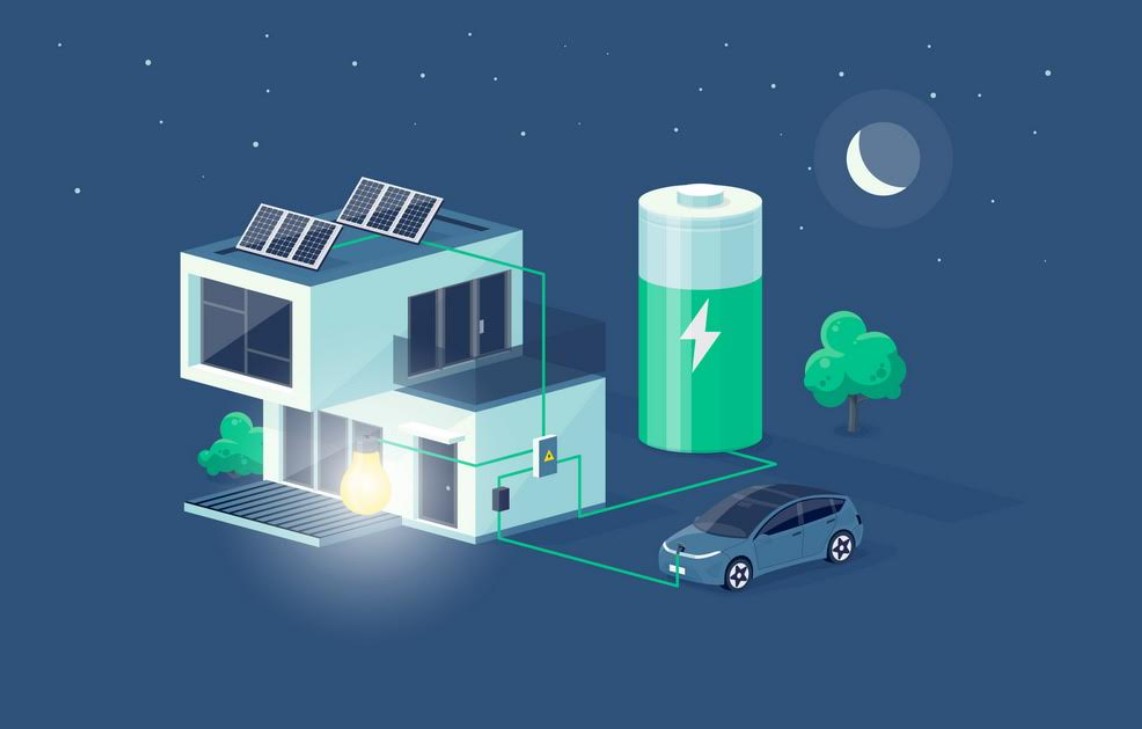
Rooftop solar panels provide clean, renewable power and lower utility bills. But matching solar energy generation to your household’s usage still requires a grid connection. The folk at Vivint Solar say that adding a solar battery system allows homeowners to tap into sun power anytime, achieving true energy independence.
How Solar Battery Storage Functions
Solar panels produce direct current (DC) electricity whenever sunlight strikes their surface. This energy is converted to standard alternating current (AC) using inverters, so it is usable in your home. Any excess solar power not immediately consumed flows out to the utility grid.
With a solar battery, this excess energy gets stored in batteries rather than sent to the grid. The batteries then discharge power in the evening when solar production ceases. This cycle charges the batteries from the panels during daytime and powers your home using the stored energy at night.
During a grid failure, the batteries continue supplying solar electricity. A battery management system oversees automatically switching between solar, battery and utility grid power as needed throughout each day.
Cutting Electricity Draw from the Grid
Adding battery storage allows your home solar system to rely much less on the traditional electric grid. Solar panels charge the batteries rather than exporting excess power to the grid. Then, overnight or during cloudy periods, you tap into the stored solar energy in batteries instead of drawing from the utility.
By covering more evening/nighttime loads with stored solar, average households can potentially supply 60% to 80% or more of their total usage with self-generated renewable energy. Solar battery systems provide a path to near or complete energy independence using free sunshine as fuel.
Going Off-Grid Permanently
With large enough solar arrays and battery capacity, some homeowners disconnect from the grid entirely. An off-grid solar design requires batteries substantial enough to power the home around the clock, even through multiple days of clouds or storms when solar output is minimal.
Living fully off-grid eliminates electric bills but requires vigilant power management. Without the grid as backup, excess daytime solar power must be prioritized for charging batteries to endure periods without sun. Conservation and efficiency are key to maintaining reserves.
Back-up Generators Still Recommended
Most solar battery systems keep a grid connection rather than going completely off-grid. Maintaining grid access provides a crucial backup to supplement batteries when needed. And grid power sometimes costs less than running down battery reserves you’ll have to recharge later.
Experts still recommend a back-up generator even with battery storage. Severe weather or other emergency grid failures can last multiple days, draining batteries faster than solar panels can replenish. A generator like those running on propane serves as an insurance policy.
Emergency Power Resilience
Keeping your home livable during blackouts provides tremendous peace of mind. Solar battery systems with smart inverters continue supplying AC power to home circuits when the grid goes down. Refrigerators, lighting, charge electronics and critical medical devices stay operational for days using your stored solar energy.
Compare that to the scrambling required with a generator – checking fuel levels, hauling it outdoors, connecting it safely to your home, etc. Solar energy storage provides automatic uninterrupted power even if you are away when an outage hits.
Conclusion
Experts emphasize that advancing solar power to reach its potential depends on continuing battery storage technology improvements. As storage capacity grows and costs keep decreasing, managing solar energy supply and demand will enable renewable energy to ultimately dominate.
Home solar battery systems already provide independence from the utility grid, emergency backup power, and financial savings. Innovations underway soon unlock the full promise of your home solar panels by storing their valuable energy output for use anytime you need it.
